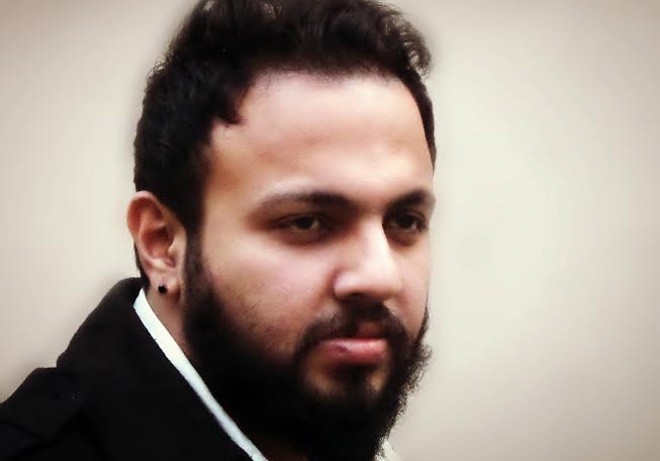
Ammar Aziz talks about his award-winning documentary, A Walnut Tree using the protagonist, Baba’s story, to evoke empathy for the IDPs

Ammar Aziz got led into filmmaking through his passion for literature and music. He graduated from Pakistan’s National College of Arts with distinction in Film Studies and has been expressing in various mediums. He has made several short documentaries about the labour struggles in Pakistan and has been closely affiliated with the leftist movement in the country.
Here, he talks about his award-winning documentary, A Walnut Tree using the protagonist, Baba’s story, to evoke empathy for the IDPs.
The News on Sunday: After the successful world premier at the IDFA 2015 and bagging the Ram Bahadur Trophy in the Film Southasia 2015, how do you think the film will be received by the Pakistani audiences?
Ammar Aziz: The film got an overwhelming response in Amsterdam and Kathmandu. There were six screenings at IDFA and, FSA had to organise a couple of extra shows to accommodate a large number of viewers. However, I’m not very optimistic when it comes to the Pakistani audiences. I feel there’s something too narcissistic about the way nationalism works here. Nobody wants to be confronted on the issues such as terrorism, ‘war on terror’ and the plight of the IDPs. There’s a certain indifference and detachment amongst a majority of the people. They want an escape from reality which our film doesn’t provide.
That said, the film is not made keeping in mind the Western audiences either. It doesn’t reaffirm the white man’s savior complex unlike several other refugee films from the ‘Muslim world’ which portray the ‘Western civilisation saving natives from barbarianism’. It’s a simple but a universal story of a man who wants to go back to his roots.
TNS: Do you think Baba’s account will show the IDP issue in a different light?
AA: Everyday we hear about the death tolls in the ‘tribal areas’ of Pakistan, a land which doesn’t even have a name of its own. The media doesn’t have any access there and we have to rely on the military provided data… "so-and-so number of terrorists have been killed in a strike". We are only told numbers. Through the film, I have tried to humanise the victims of the war. Baba really becomes a metaphor of the collective pain of that land. As an educator and a poet, he gives a familiar face to the Pashtun people who are usually seen as ‘the others’.
TNS: What is the future of documentary making in Pakistan? In terms of viewership, are documentaries successful in reaching out to audiences? Do they help get the message across?
AA: I don’t know about the future but creative documentary filmmaking -- as an art form -- still has to create its space in Pakistan. The NGO-isation of the form has resulted in certain notions about documentary filmmaking. A documentary is not always about an ‘issue’ or an ‘agenda’; it’s not even always about ‘facts’ and ‘information’. It can be as expressive and subjective as any other art form. And like any art form, it can only flourish once it’s free from the constraints of censorship and propaganda.
Moreover, the broadcasters and distributors in Pakistan are not bothered about creative documentaries. They sell sensationalism cheaply packaged as news reports. Who cares about the visual language and storytelling when you have a whole industry of bizarre live shows and ‘breaking news’ culture? Where are we supposed to screen our works locally when even television channels don’t show any interest let alone cinema distributors? We can’t engage a large number of people and have a meaningful dialogue in the absence of such platforms.
TNS: Where in Pakistan do you intend to show the film and when? Will this film, in your opinion, be allowed to run given that it tackles a sensitive issue?
AA: I would love to screen the film here but I don’t know how we can make that happen. It’s not about showing once to a handful of people at some bourgeois café. Film is a medium for the masses; it must really reach a wider audience. Some international distributors have expressed interest and it will be screening in several countries except, ironically, the country of its production. It will certainly ruffle many feathers of the establishment as the people I have worked with are not scared of naming the forces behind this bloodshed. And neither am I.
TNS: What other projects are in the pipeline? Do you intend to stick to the documentary genre to tell stories?
AA: While I also express in mediums such as music and so forth, documentary filmmaking remains the emphasis of my being. I’m developing a couple of ideas on themes such as sexuality and gender. Let’s see.